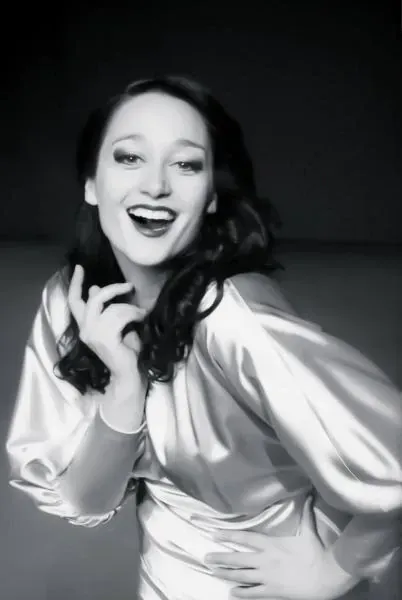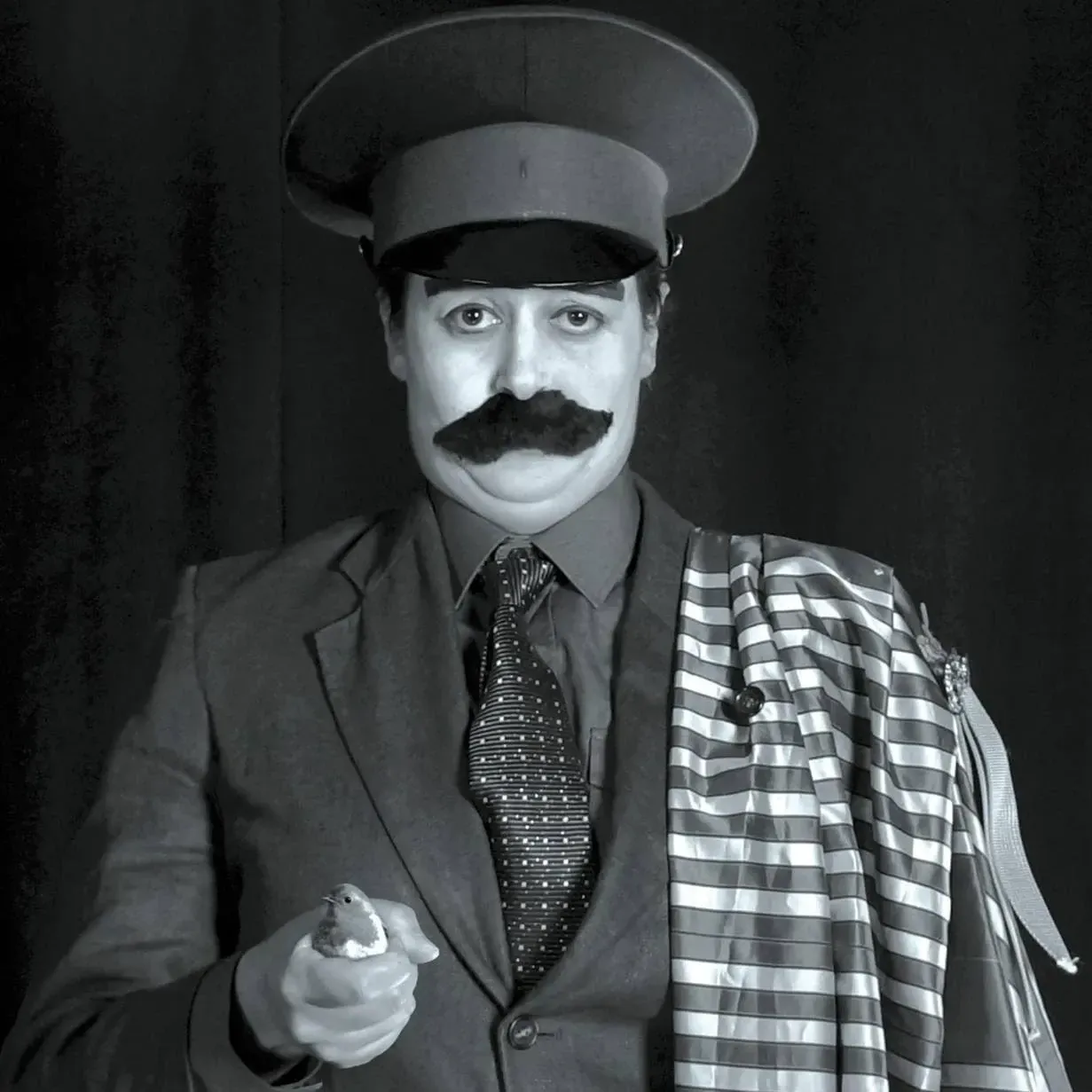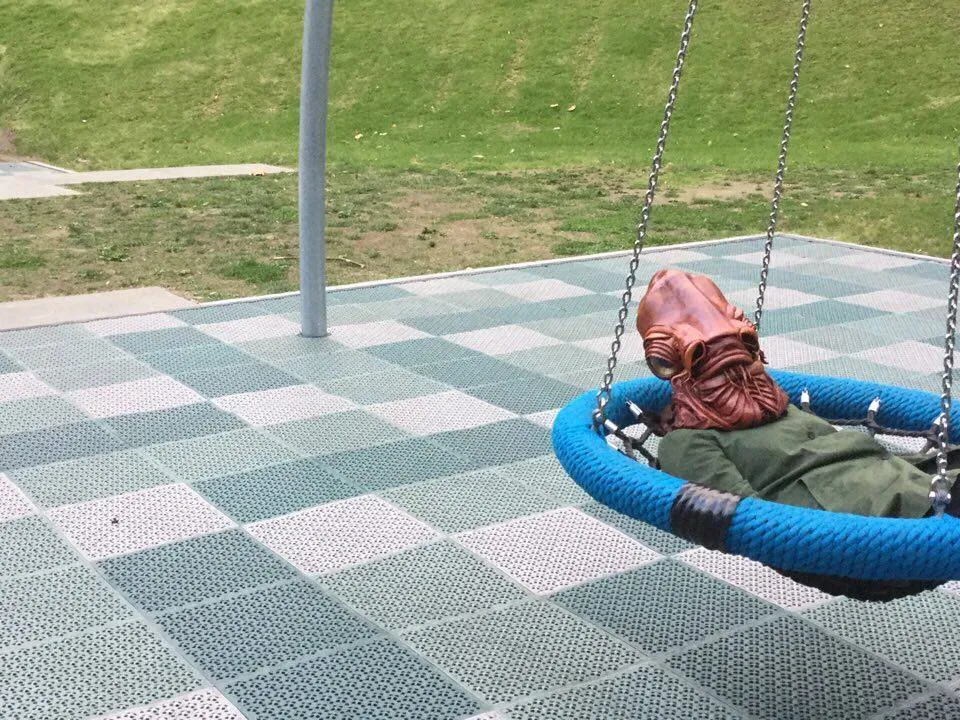Anya Tate-Manning: Vulnerability & Resilience
Written by

Anya Tate-Manning is a performer, director and writer. She is one of the creators behind the political satire, Public Service Announcements, a member of the cult classic, Puppet Fiction, and writes and performs her own solo shows. Anya spends a lot of her time contributing to and acting in the world of comedy and satire. She sees laughter as a tool of unity - a way to open up audiences to listen in different ways to new ideas. Anya talks to The Big Idea about growing up as a performer, her early challenges getting off the ground and the concerning levels of of anxiety and depression that exists amongst her peers.
“We’re suffering losses in our industry … When you have to perform at night and then you go home and you can’t answer the phone or reply to an email for days at a time there’s a big problem there because you’re still presenting to the world in a resilient way but privately you are falling apart.”
‘The Madame’
When Anya was seven, she would dress up in her mum’s finest outfits and spend entire days deep in the character of a satirical older wealthy lady called ‘The Madame’. This choice of character bemuses Anya as there were no influences that she can remember in the socialist household that she grew up in that could have inspired her. “There was a parody in [‘The Madame’] that I don’t know where it came from.” Anya’s mum was a big advocate of her fledgling performers spirit, and there were aspect of her parents jobs that helped her recognise her desire to perform. She loved the circuses and carnivals that would visit the alternative psychiatric hospital, Cherry Farm, where her parents worked in drug and alcohol rehabilitation and was fascinated watching her parents do play-back theatre with patients at Otākou Marae.
Anya has fond memories at junior school of being part of a chorus of Christmas unionist gnomes who were trying to start a strike. She vividly remembers how amazing it felt to be on stage with all her friends and was genuinely shocked when none of them wanted to go to university and study theatre with her. When Anya was 18 she performed in her first professional play, Whaea Kairau. She loved it so much that when they paid her she tried to return the money “because it was so amazing just to be part of it.” This was the beginning of a career path that has involved a lot of hard work, many sacrifices, a lot of saying yes and taken her on incredible journeys she could never imagine.
Advocating the ‘say yes to everything’ approach and overcoming a sense of entitlement
Early in her career, Anya admits that she suffered from a heightened sense of entitlement which was a block she had to overcome. “There was a sense of ‘I’ve trained and I’ve got some experience and now I’m entitled to be an artist’ and being disappointed that people weren’t throwing offers of work at me.” It took awhile to learn that you have to earn your place as a storyteller in society. “It’s not just your right to entertain or to try to move people. You have to work for it and you have to mean it in a way.”
Anya brings an “I’ll do anything!” approach to her work and career. Her enthusiasm to say yes to any opportunity has lead her down many unpredictable paths. “It’s healthy to have an attitude to say yes to everything because the weird thing that you think you might not enjoy could be the thing that you do for seven years.” For Anya, this has been the cult classic, Puppet Fiction, a table top marionette show that pays “hilarious puppet homage” to Tarantino’s Pulp Fiction. With the success of Puppet Fiction, Anya has toured and made connections nationally and internationally.
In recent years, Anya set herself the challenge of creating her own work. She had the ideas floating around in her head for five years before she began the process of creating them. Her trick was to give herself a deadline. She enrolled and was accepted in both the NZ Comedy Festival and the Perth Fringe Festival. She was yet to write either piece. “Generally the making is under a veil of panic and anxiety. The only thing that will make me do it if I am booked into a Festival.” She uses the Festival setting to her advantage as she knows that even if all she manages in the lead up to the Festival is to actually create the piece, no matter what she will already be part of a giant publicity machine. Anya comments that performing solo shows at Festivals can be incredibly demanding and lonely. She has found that touring Puppet Fiction alongside her solo shows has been an amazing way to tour as part of a team which provides the energy and unity that is needed to keep going.
It was the development and creation of solo shows that helped Anya to overcome this initial sense of entitlement. “Sitting in a bar and bitching about the industry is the least helpful thing to do. You’re swimming in a resentment bath. If you start doing something, you find worth in what you’re doing because you have to be able to back it. You have to have some courage.” She admits that the road is not easy creating your own work, but the results for her have been invaluable. “You have to risk quite a lot.” But she says the risks are worth it. “The act of doing something allows you to meet more practitioners and makes you ready to do other work because you’re active.”
A love of comedy and political satire
The satirical nature that came naturally as ‘The Madame’ at a young age has been a theme for Anya, and she has woven comedy and satire into much of her career. She has always been "deeply obsessed" with comedy and laughter and believes in the power of laughter to bring unity to a crowd. “There’s nothing better than sitting in a crowd and laughing or singing together. There’s an openness in it. When you laugh, your heart is open which allows people to listen in a different way.”
In 2010, Anya and her partner James Nokise started their political theatre and comedy show, Public Service Announcements (PSA). They noticed that political satire had vanished from theatres and the TV. “It had been five years since anyone had seen any political satire on TV, which was strange and scary.” They created a show where they satirise, poke fun and relentlessly rib politicians of all sides of the political spectrum. “We don’t push a political agenda because it’s important that we mock everyone, because we need to examine them all. They are all accountable. Just because they are not in power doesn’t mean they shouldn’t be scrutinised.”
In the very beginning they took a cautious approach and had concerns that they might get in trouble for making fun of political leaders. They invited every politician that they satirised to the shows. Once they realised that the politicians didn’t care (one politician commented that this ruthless ribbing was minor compared to what they say to each other on the floor) and that people were enjoying themselves, they stopped worrying and let the creative genius behind PSA go wild. Within reason of course, Anya states that they would never bring a politicians family onto the theatre stage.
Anya views political satire as an essential ingredient to holding leaders to account. “Why shouldn’t we mock them? Don’t they work for us? Don’t we pay their wages? We have every right to examine them and make fun of them.” Their audiences vary and they always make sure that they are making comedy that everyone can understand. This, she believes, contributes to what people take away from the shows. “Satire is an easy form of political commentary to digest. You’re not lecturing. You’re not waving your fist in the face of power. It’s more destabilising to mock it because then you take away the power.” PSA is now a staple in the world of New Zealand political satire and will be in full swing again this week in the lead up to the general election.
Vulnerability and Resilience - “We’re suffering casualties in our industry.”
There is a certain openness of self that is essential to impacting people as an artist. This active vulnerability allows audience members to connect with the character, and to identify themselves in the story. Remarkable performances are the ones that draw people out of themselves; and this can only be achieved if the artist remains entirely open so that people can trust the character enough to be vulnerable themselves, even if just for a fleeting moment. This openness and vulnerability can come at a high cost to artists. Any anxiety which is felt before a show must be repressed in order to perform, and Anya finds that this can become like a valve that releases once the show is over coming back even stronger than it was before.
In direct contrast to the openness and vulnerability on stage, off stage performers are expected to present a strong public face. There is a necessary resilience that is needed in the face of reviews, audiences and financial instability. “You’re vulnerable and open, but you have to be hard at the same time because you have to take rejection and poverty and justify your choices to people.” The nature of the work is incredibly unpredictable and often unstable. “It’s like your job itself has bipolar. You have these extreme highs when you do the best work you’ve ever done so far and then you have a month of a quiet lull when you can’t handle being around people and you’re kind of alone.”
Industry-wide she has noticed that more people are talking about mental health and sharing tips about how they cope. “We’re more prone to mental illness and there’s no shame in that … It’s more normal to talk about it now. You realise that you’re not different.” She believes that people working in the sector need to keep talking about it to remove the stigma so that they can support each other better. “When performers talk openly about their mental health, you realise that everyone is the same as you. Depression, anxiety and panic attacks are really normal amongst performers … When you have to perform at night and then you go home and you can’t answer the phone or reply to an email for days at a time there’s a big problem there because you’re still presenting to the world in a resilient way but privately you are falling apart.”
Anya spoke openly about the sacrifices that she has made in order to pursue a career in theatre. “The sacrifices for me at the moment are facing the reality that I will never own anything. I will never own a house. I’ve never owned a car. You can at times feel quite root-less if you’re travelling a lot. There are certain things that normal people do that feels quite hard sometimes. You can’t have a dinner party at your house if you don’t have a house.”
When she finds those sacrifices sitting too heavy on her shoulders she reminds herself that she has actively pursued this path. “You have to remember that you are also very lucky because you get to do some incredible things that you don’t even imagine will be possible. I never imagined that I would perform a puppet show in Edinburgh to a room of 150 people every day that would earn us more money than the whole year beforehand. There are so many surprises that can be joyful. It’s kind of like having faith. You have to hold onto hope. If you lose your hope or resilience then we become too vulnerable as artists.”
Personally, Anya has found that every experience teaches her a new lesson in how to cope with the inevitable stresses of the performers lifestyle and she has become more aware of how to manage the lows that come after a high. She now plans down time after touring shows and gives herself space to recover from the exhaustion of performing every night. She has built up her own resilience over the years. Survival is the key in this industry and that is why she commits to the “I’ll do anything!” approach. She says that half the time it is about just showing up. “The resilience is just to keep showing up to other things when you get rejected from something.” For Anya, it might have been ‘The Madame’ and the ‘unionist gnome’ that started the fire needed to pursue a career in acting, but it has been a lot of hard work, a commitment to saying yes and a deep love of humour that have made this a true reality.
Upcoming shows:
- Public Service Announcements; Stranger Politics, Bats Theatre, Wellington, September 12-16th, 6.30pm

